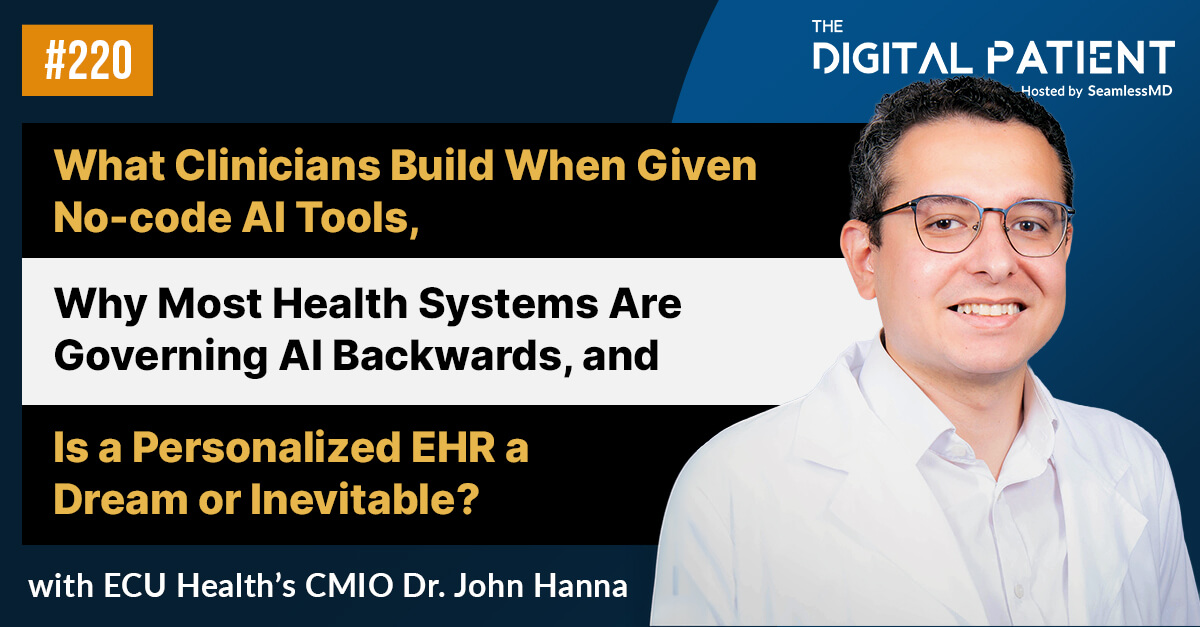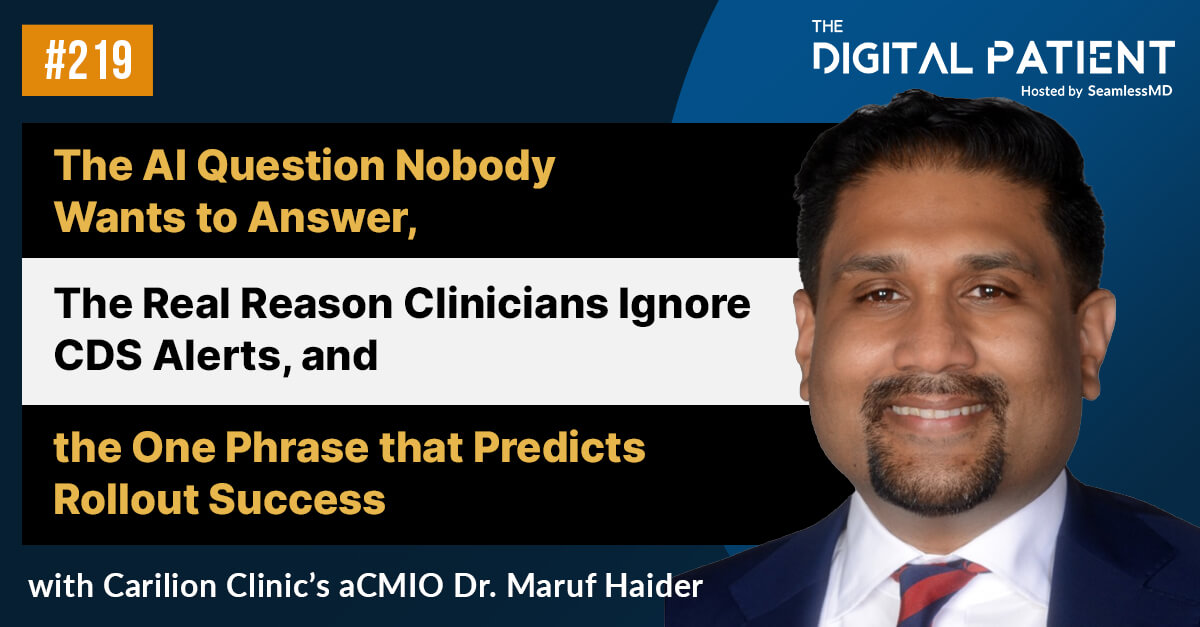Subscribe on: | | | | |
Video:
In this episode of the ˛ÝÝ®ÉçÇř Podcast, Dr. Joshua Liu, Co-founder & CEO at ˛ÝÝ®ÉçÇř, and marketing colleague, Alan Sardana, discuss how Ontario hospitals are tackling the surgery backlog with Digital Patient Engagement. See below for show notes.
Guest(s): Dr. Joshua Liu (), Co-founder & CEO at ˛ÝÝ®ÉçÇř
Episode 22 – Show notes:
[00:23] How COVID-19 has impacted surgery over and above keeping the ICU clear for COVID-19 patients such as the rise of patients with later-stage cancers requiring surgery;
[04:55] How COVID-19 has health systems are re-examining current workflows to understand inefficiencies such as in-person pre-operative education, the cons of paper education booklets, unnecessary post-op follow-up visits, and how digital patient engagement can help improve some of these workflows;
[07:02] How Ontario health systems such as Michael Garron Hospital, Sunnybrook, and Sinai Health System used digital patient engagement for years to reduce patient cancellations, ED visits, and readmissions;
Relevant Research:
- • Michael Garron Hospital (2015) reduces surgery cancellations and ED visits:
- • St. Joseph’s Healthcare Hamilton (2018) reduces surgery ED visits by 47%:
- • Sunnybrook (2019) prevents patient phone calls:
- • Sinai Health System (2020) reduces surgery readmissions by 66%:
[08:00] Why the Ontario Telemedicine Network (OTN) established a vendor of record (VOR) for digital surgery solutions in 2017 so Ontario health systems could adopt pre-vetted digital technology faster, and how ˛ÝÝ®ÉçÇř is the only Canadian vendor included on the VOR today;
[12:00] How digital patient engagement enables hospitals to tackle the surgery backlog by screening patients and employees for COVID-19, while preparing patients for surgery pre-operatively, and by tracking post-op symptoms remotely, minimizing risk for patients;
[15:26] Why the federal government set up Supercluster projects to bring industry partners together to solve important problems, and how ˛ÝÝ®ÉçÇř leads the national Supercluster project dedicated to reducing the surgery backlog through innovative digital patient engagement and machine learning;
[21:36] How digital patient engagement could be used in a post-pandemic world to support a variety of health conditions and interventions and why reimbursement models will need to change because of the increased use of digital patient engagement; and
[25:56] Why digital patient engagement is a stepping stone for creating a virtual care future because of its application of current technologies already benefiting patients and health systems alike;
Ěý
Ěý
.svg)





